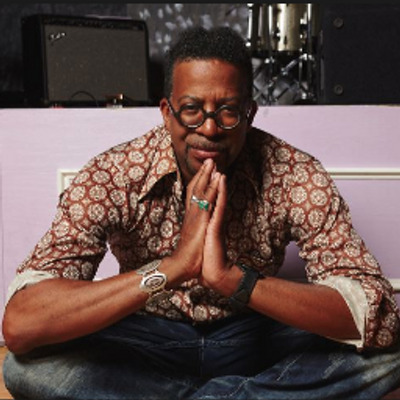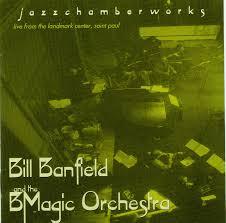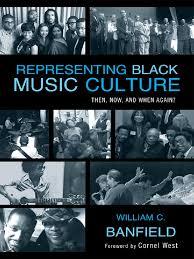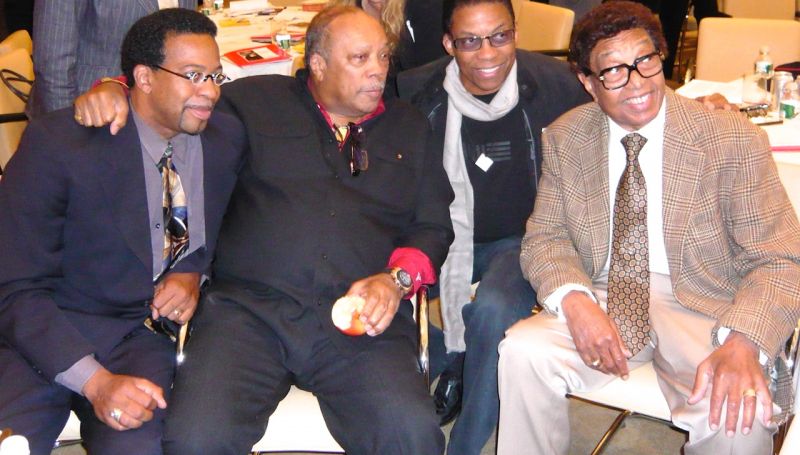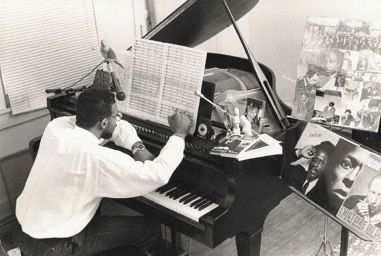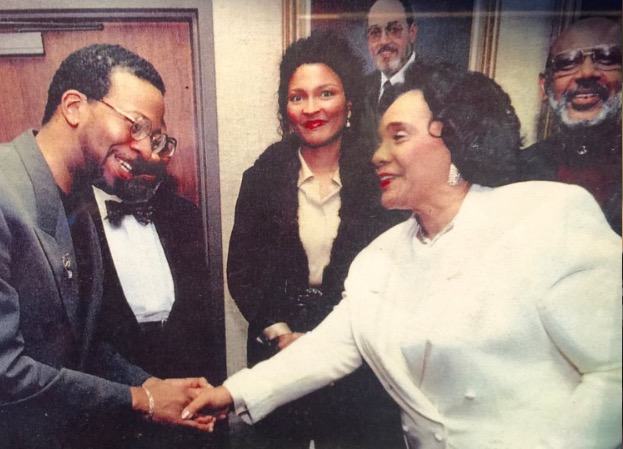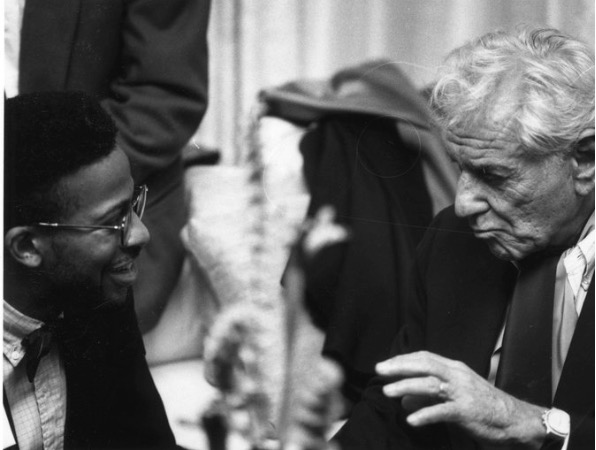Bill Banfield
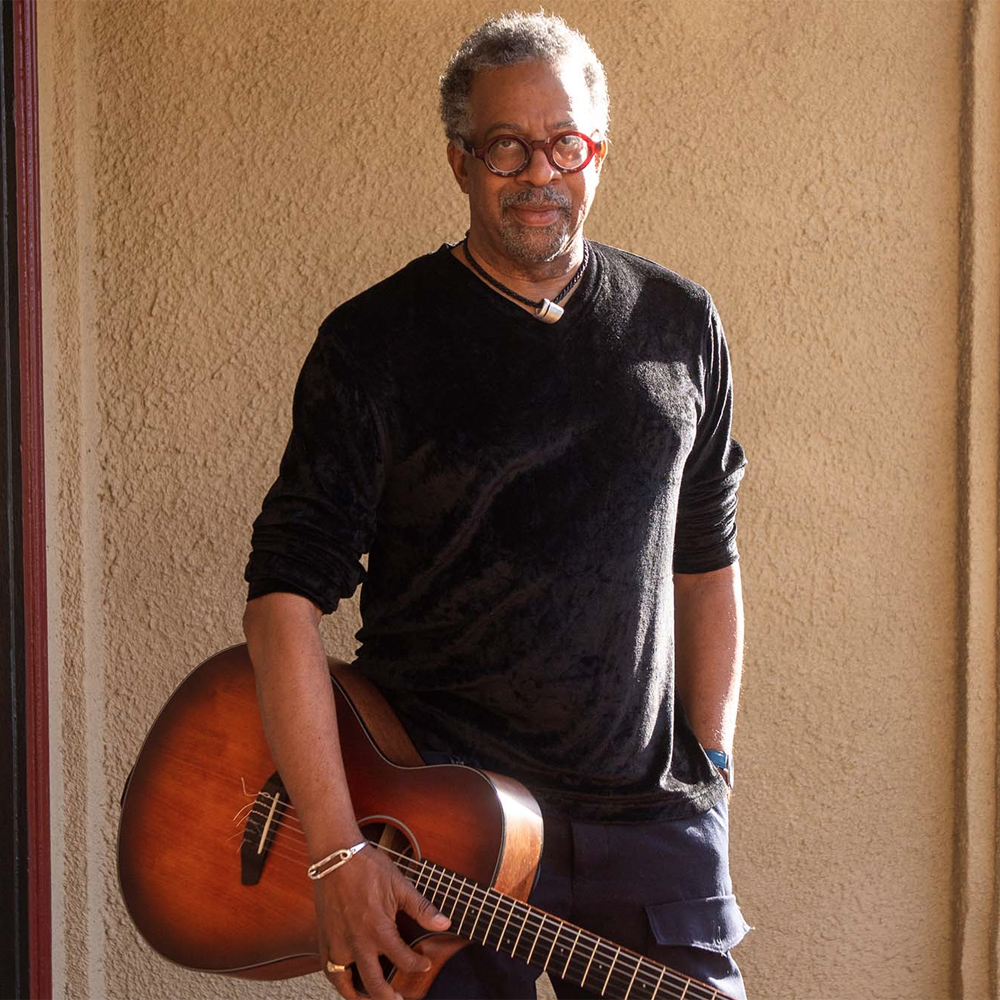
Bill Banfield came to Boston from Detroit in 1979 to pursue an undergraduate degree in jazz studies. Working with guitarist Mick Goodrick, he received his BA in music from New England Conservatory, a master’s in theological studies from Boston University and a doctorate in composition from the University of Michigan after completing his PhD studies under T.J Anderson, George Russell, Theodore Antoniou, Bill Bolcolm and Bill Albright.
Boston Public Schools, Tanglewood, Harvard, Princeton
From 1980 to 1988, Banfield was a full-time music teacher in the Boston public schools. He also worked as director of music studies programs at Tanglewood for the Boston Symphony Orchestra and several Boston neighborhoods’ education and arts programs, including Young Artists Development, Inc., which he founded.
From 1997 to 2005, he worked at the University of St. Thomas in Minnesota as chair of humanities and fine arts departments, professor of music and director of American cultural studies (jazz, popular, world music). Between 1992 and 1997, he was assistant professor of African-American studies/music at Indiana University, where he developed the Undine Smith Moore Collection of Scores and Manuscripts of Black Composers. In 2002, he was a W.E.B. Dubois fellow at Harvard University and in 2003 he was an Atelier professor at Princeton.
Berklee College Of Music, Pulitizer judge, Composing
From 2005 until his retirement in 2020, Banfield was a professor and director of the Africana Studies Center at Berklee College of Music. He was named professor emeritus and a founding director of black music culture studies for his service to the institution.
In addition to having served three times as a Pulitzer Prize judge in the category of American music (2010, 2016, 2020), Banfield is an award-winning composer whose symphonies, chamber works and operas have been performed and recorded by major symphonies across the country including the National (Atlanta, Minneapolis, Dallas, Akron, Detroit, New York); Virtuoso (Grand Rapids, Akron, Richmond, Toledo, Savannah, Chicago); Symphonia (Indianapolis); and Sphinx (Sacramento, San Diego). Recently, Banfield was appointed as a research associate at the Smithsonian Center for Folklife and Cultural Heritage (CFCH), one of the Smithsonian’s 12 research and cultural centers.
Books, Jazzurbane
Banfield has authored six books on topics including music, the arts, cultural criticism and history along with biographies of Ornette Coleman, Nicki Minaj and Kendrick Lamar: Landscapes in Color: Conversations With Black American Composers (2002); Black Notes: Essays of a Musician Writing in a Post-Album Age (2004); Cultural Codes: Makings of a Black Music Philosophy (2010); Representing Black Music Culture (2011); Ethnomusicologizing: Essays on Music in the New Paradigms (2015); and Pat Patrick: American Musician and Cultural Visionary (2016).
In addition to his university work and publishing projects, Banfield is founder and director of JazzUrbane, a contemporary jazz label dedicated to promoting new artists. The project, which began in 2014, was produced by the legendary George Duke, and included such leading artists as Christian Scott, Terri Lyne Carrington, Najee, Greg Osby and Grace Kelly. The label has released eight albums.
Commenting on the organization, noted jazz writer and critic Bob Blumenthal cited Banfield’s talents as keys to its success. “The imagination from which this ensemble’s music springs belongs to Bill Banfield. It knows no borders, be they stylistic, historic, ethnic or age-related,” he wrote. “It views music as the common ground upon which all of us can meet, and celebrate … Banfield’s original compositions and arrangements of well-chosen standards is nothing short of alchemical, as he tends the shared roots of jazz … While his perspective rarely stands still, there is no feeling of mash-up. Everything and everyone flows … That is what happens when music tests our imagination.”
In 2010, Banfield was hired by iconic producer Quincy Jones to write a national music curriculum and book for public schools. Dr. Cornel West has referred to him as “one of the last grand Renaissance men in our time,” noting that he’s “a towering artist, exemplary educator, rigorous scholar, courageous freedom fighter” and Henry Louis Gates has called him “one of the most original voices on the scene today,” saying that Banfield “tunes us in to the conversation happening worldwide between the notes of contemporary musical culture.

